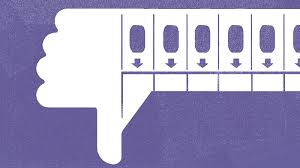Calls for boycotting Bihar polls: You can’t win if you don’t play

In the vibrant and often volatile landscape of Indian democracy, the state of Bihar has always held a distinctive place. With its rich political legacy, socially complex fabric, and a history of mass mobilization, elections in Bihar are never ordinary affairs. However, in recent weeks, murmurs of discontent have escalated into loud calls for boycotting the upcoming polls. Whether these calls come from frustrated youth, marginalized communities, or civil society groups, the sentiment is clear: many feel let down, unheard, and unrepresented. Yet, amid this growing frustration, one question demands reflection—can democracy truly be challenged or changed by walking away from it?
The instinct to boycott elections is not new, nor is it exclusive to Bihar. Across India—and indeed around the world—boycotts have often been used as a form of protest. They send a message of dissatisfaction with the status quo. But as history shows us, while boycotts may garner headlines and hashtags, they rarely bring about the structural transformation their proponents hope for. In fact, they often leave the space open for the very forces being protested against to consolidate their hold on power. Democracy, after all, is not a spectator sport. You can’t win if you don’t play.
The Roots of Disillusionment
The call to boycott the Bihar elections stems from a number of legitimate grievances. Unemployment continues to haunt the state’s youth, especially as government job vacancies remain unfilled for years. Corruption seeps into every level of governance, from village panchayats to district administrations. Infrastructure development remains painfully slow in rural areas, and caste-based discrimination still shapes access to opportunity and justice.
For many, voting every five years has not led to meaningful change in their daily lives. The promises made on campaign trails quickly evaporate once the ballots are counted. It’s no wonder then that some people, especially first-time voters and marginalized communities, are questioning the point of participation.
Yet, while the frustration is justified, the method of protest—a blanket electoral boycott—raises serious concerns.
Boycotts: Silence That Speaks Less Than Votes
Electoral boycotts aim to send a message to the political class: “We refuse to validate your broken promises and failed leadership.” But in practical terms, the message is often lost in translation. Low voter turnout doesn’t punish the ruling elite—it simply hands them victory by default.
In a democracy, power doesn’t rest with those who complain the loudest, but with those who turn up. A seat won with 15% of the vote carries the same weight in the assembly as one won with 70%. By choosing not to vote, protestors unintentionally empower those they wish to challenge.
Bihar’s political history has shown time and again that change is possible through the ballot box. From the rise of backward caste leaders in the 1990s to the rejection of dynastic politics in more recent elections, voters in Bihar have used their voice to reshape the state’s political narrative. Choosing silence now would undo decades of democratic assertion.
Apathy or Activism? Reclaiming the Ballot
There is a growing sense that the youth of Bihar are caught between hopelessness and helplessness. But choosing to boycott elections reinforces apathy rather than channeling activism. If the goal is systemic change, then the better route is to organize, raise awareness, and support candidates who represent genuine alternatives.
Independent candidates, grassroots movements, and issue-based politics can only thrive if people participate. New political voices cannot emerge in a vacuum; they need votes, not just vocal support. If young voters, civil society, and marginalized communities turn away from the democratic process, they surrender the field to those who have always exploited it.
Boycotting the vote is not rebellion. It’s resignation.
Learning from the Past
Consider the 2019 general elections, where despite anger against national and local leadership, voters turned out in large numbers across India. In many places, especially urban and semi-urban pockets, the youth vote played a crucial role in influencing electoral outcomes.
Or look at local elections in Bihar itself. In multiple districts, independent candidates backed by farmers’ unions, students’ groups, and community leaders have secured surprise wins. Their success was not because of mass boycotts, but because people showed up and voted consciously.
When citizens choose to participate—even if it’s to vote NOTA (None of the Above)—they make a powerful statement. It tells the system, “We are watching. We care. And we won’t settle for less.”
The Cost of Staying Silent
Elections are not perfect. Indian politics is riddled with flaws—dynastic entrenchment, criminal candidates, money power, and more. But the answer to a flawed system is not to exit it, but to reform it from within. Democracy is slow and frustrating, but it offers a peaceful and legal pathway for change—one that many nations still yearn for.
In Bihar, the stakes are too high to opt out. Whether it’s education, jobs, women’s safety, infrastructure, or law and order, every policy that affects daily life stems from political decisions. If voters disengage now, they risk allowing decisions about their future to be made without their input.
Moreover, silence can be interpreted as consent. A boycott may feel like a protest, but to those in power, it often reads as apathy.
Conclusion: Choosing Action Over Abstention
Bihar’s history is filled with examples of courage, resistance, and political awakening. From the JP Movement to the Mandal Commission protests, Biharis have never shied away from challenging authority. But those struggles were built on participation, not withdrawal.
This election, instead of walking away from the ballot box, the people of Bihar have an opportunity to reclaim it. To reject traditional politics not by boycotting, but by choosing better. To demand accountability not through silence, but through votes.
Change does not come from staying home. It comes from showing up.
Because in the end, you can’t win if you don’t play.






